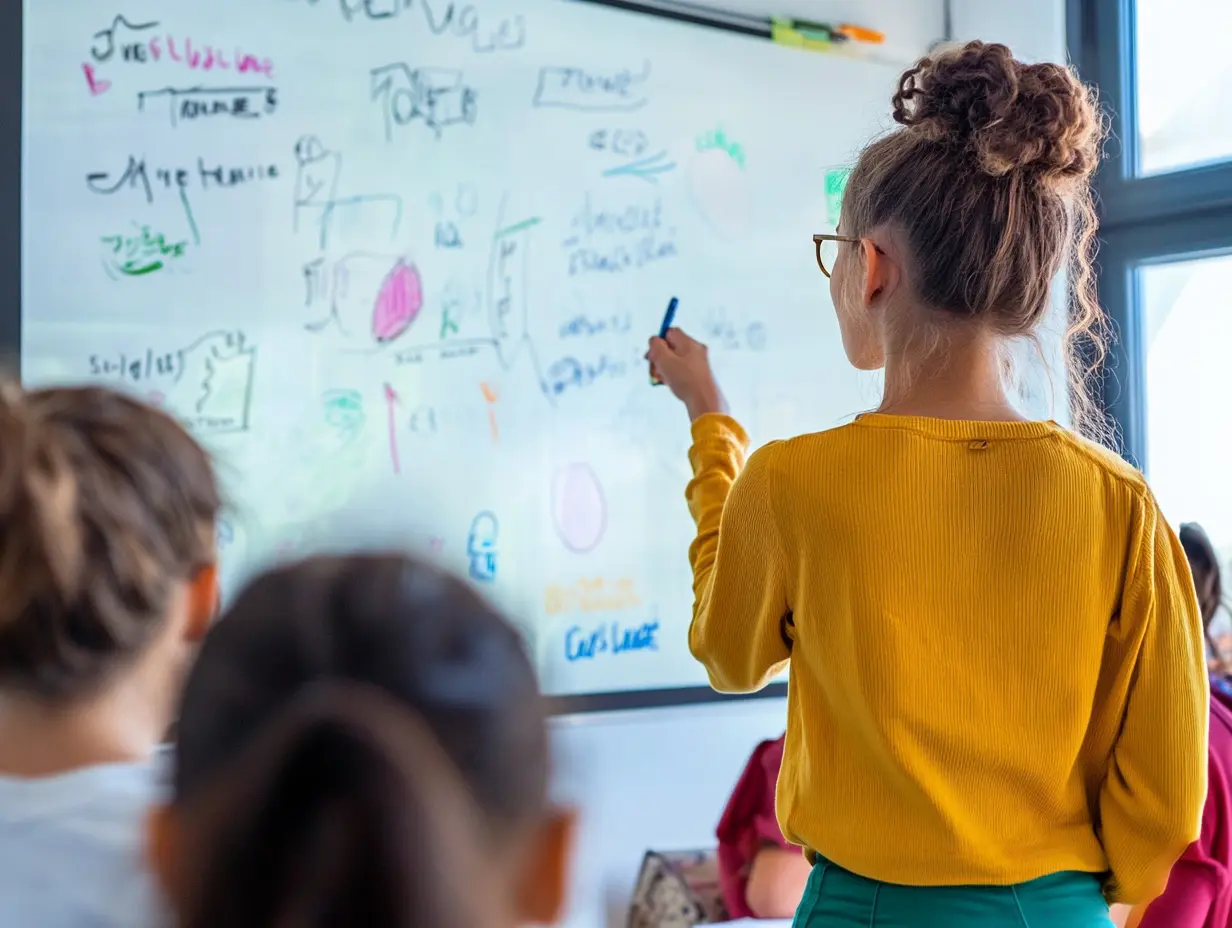Determining the right time to introduce tutoring into a child's education can be pivotal to their academic success.
Every child is unique, and the decision to commence tutoring should be made with their individual needs in mind.
The effectiveness of tutoring can be influenced by multiple factors including a child’s developmental stage, their specific challenges in learning, as well as their readiness to receive external academic support.
It is widely recognized that early intervention can be beneficial, however, there are varying opinions on the exact age that is best for starting tutoring.
Private tutoring can be a powerful tool to complement a child's education, offering personalized attention to help strengthen their understanding of subjects.
Children's responses to tutoring can greatly vary, this is not a one-size-fits-all situation.
It's important for parents and guardians to closely observe their child's academic performance and attitude towards learning.
This helps in gauging the appropriate time to introduce a tutor.
Likewise, considering the child’s ability to engage for the duration of a tutoring session is crucial.
Younger children may benefit from shorter, more frequent sessions, while older students might be able to handle longer sessions less frequently.
Key Takeaways
- Personalized tutoring can enhance a child's learning when timed correctly.
- Observe your child’s academic needs and readiness to engage in tutoring.
- Tutoring session length and frequency should align with the child's age and attention span.

Understanding Tutoring and Child Development
When you consider tutoring for your child, it's crucial to integrate the understanding of cognitive and emotional development stages to ensure effective learning.
Cognitive Milestones and Learning
Cognitive milestones play a key role in designating the appropriate time to introduce tutoring.
For instance, significant cognitive development happens around age 7, a time when many experts recommend considering a tutor.
This age typically marks advancements in critical thinking, problem-solving, and grasping more complex concepts which tutoring can effectively support.
Key milestones to consider:
- Ages 5-7: Reading and basic arithmetic comprehension sets in.
- Ages 8-10: Analytical and abstract thinking begins to develop.
Understanding these milestones can guide you in selecting the right time and type of tutoring to complement your child's learning journey.
Emotional and Social Growth Factors
Your child's emotional and social maturity are equally important in ensuring tutoring success.
A positive tutor-student rapport lays the foundation for a constructive learning environment.
Tutors should adapt to your child's learning style and preferences, promoting not only academic development but also a sense of confidence and motivation.
Aspects to evaluate:
- Compatibility: Choose a tutor whose teaching approach aligns with your child's personality and learning style.
- Social Development: Assess if your child can benefit from one-on-one interaction, which can boost social skills such as communication and cooperation.
The Ideal Age to Begin Tutoring
Deciding on the right time to introduce tutoring can make a significant difference in your child's academic journey. Factors such as individual needs and learning goals play a critical role in this decision.
Early Childhood Tutoring Benefits
Tutoring during early childhood, often starting around the age of four, can create a strong foundation for learning.
It can help you identify and address any potential learning difficulties early on, and tailor the educational experience to meet your child's unique needs.
Early tutoring might include activities that are targeted towards language development and numeracy skills within a playful context to keep the young learner engaged.
Elementary School Academic Foundations
As your child enters elementary school, a tutor can help solidify reading, writing, and math skills.
This phase is crucial as these are the years when your child develops core academic skills.
At this stage, ensuring your child understands these foundational elements can provide a stepping stone for future learning.
For example, a tutor might work on strengthening comprehension and problem-solving abilities, which are integral across subjects.
Middle School Subject Specialization Preparation
Once your child reaches middle school, the curriculum often becomes more challenging, with a greater emphasis on subject specialization.
A tutor can help prepare your child for this transition by focusing on study habits and introducing advanced concepts within specific subjects.
Support in areas such as advanced math and science can be important at this stage, setting your child up for success in high school and beyond.

Factors Influencing Tutoring Needs
The right time for you to seek tutoring services for your child is influenced by several critical factors, such as individual learning styles and thorough assessment of performance.
Individual Learning Styles and Paces
Each child has a unique approach to learning, which greatly affects when and why they might need tutoring.
For example, visual learners benefit from diagrams and spatial understanding, so a tutor who excels at graphical illustrations could be instrumental for them.
Conversely, auditory learners might require tutoring that enhances their listening and verbal skills through discussions or oral presentations.
Identifying your child's learning style will guide you in finding a tutor who can tailor their methods accordingly, making the tutoring process more effective and efficient.
Assessment of Academic Performance And Gaps
It's crucial to assess your child's academic performance to determine the areas where they need support.
This includes looking at their grades, understanding their strengths and weaknesses, and noting any particular subjects they struggle with.
Academic assessments also reveal gaps in knowledge that might need addressing before they develop into more significant issues.
A tutor with experience in a specific subject, such as mathematics, might be necessary to fill those gaps.
Moreover, a well-timed intervention could prevent minor setbacks from turning into obstacles for your child's educational progress.
Tutoring Approaches for Different Ages
Your child's academic growth is influenced greatly by the tutoring methods that are tailored to their age group. Properly adjusting tutoring strategies can lead to more effective learning and a better educational experience.
Adaptive Learning Techniques
Young Learners (Ages 5-10): For young learners, tutors should employ a variety of adaptive learning techniques that include interactive activities and game-based learning to keep sessions engaging. Lessons should be dynamic and adjusted in real-time based on the child’s responses.
Teenagers (Ages 11-18): Strategies for teens often involve a more structured approach to help them prepare for exams and higher education. Personalized lesson plans that cater to their specific strengths and weaknesses can be very effective.
Adult Learners: Adults returning to education or pursuing new skills may benefit from self-paced learning and practical applications relevant to their personal or career goals.
One-on-One Versus Group Tutoring Dynamics
Individual Tutoring: One-on-one sessions allow you to receive personalized attention and custom-tailored instruction, which can be particularly beneficial if you have unique learning needs or goals.
- Tailored Feedback: Immediate and specific feedback can help you understand concepts more quickly.
- Pace Adjustment: The tutor can slow down or speed up based on your grasp of the material.
Group Tutoring: Learning in a group environment can encourage collaboration and allow you to benefit from the questions and explanations of others, adding depth to your understanding.
- Peer Learning: Discussing topics with peers can reinforce your knowledge.
- Diverse Perspectives: Exposure to different viewpoints can enhance problem-solving skills.
Both one-on-one and group tutoring can be effective; it often depends on your learning style and the complexity of the subject matter.

Parental Involvement and Support
Parental involvement in your child's tutoring can significantly enhance the effectiveness of the educational support they receive. By being actively engaged, you can ensure that the tutoring process aligns with your child's unique learning needs and educational objectives.
Setting Realistic Goals and Expectations
Your role in setting realistic goals for your child’s academic achievement is crucial.
Start by understanding your child’s current performance and consult with their tutor to establish achievable milestones.
Short-term goals might look like:
- Improvement in weekly quiz scores.
- Completion of homework assignments on time.
Long-term goals could include:
- Achieving a semesterly GPA target.
- Excelling in a subject’s standardized test.
Home Environment and Study Habits
The study environment you provide at home is equally important.
Create a dedicated, distraction-free study space where your child can focus on learning.
Encourage consistent study habits by establishing a schedule that includes regular breaks, and ensure all the necessary materials are within reach.
A conducive study space should:
- Be quiet and well-lit.
- Include a comfortable, organized desk area.
Effective study habits encompass:
- A regular study timetable.
- Breaks to prevent burnout.
- Tools for effective time management, like planners or digital apps.
Measuring Tutoring Success
When you evaluate the effectiveness of tutoring, focus on tangible results in academic achievements and shifts in attitude towards learning, which are crucial indicators of progress.
Academic Performance Improvements
To assess academic improvements, monitor your grades and test scores before and after the commencement of tutoring sessions.
Look for patterns of gradual improvement in specific subject areas where you received tutoring.
The Universal Evaluation Toolkit for Academic Tutoring Programs provides a framework for evaluating student progress, ensuring that any academic gains align with the goals that were set for the tutoring program.
Confidence and Motivation Milestones
Apart from grades, an increase in your confidence and motivation is a positive outcome of effective tutoring.
You should notice a rise in your willingness to participate in class or tackle challenging homework assignments.
Personal relationships developed during tutoring sessions are key, as a tutor's support is often cited in What Makes a Successful Tutor? | Edutopia as instrumental in building student confidence and motivation.
Keep an eye on these intangible milestones, as they play a significant role in your long-term academic success.








































































